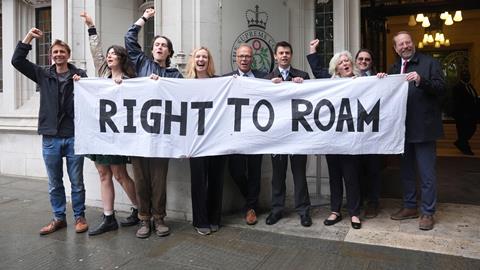Camping is a form of ‘open-air recreation’, the Supreme Court has ruled, confirming the public’s right to wild camp on Dartmoor.
Dartmoor National Park Authority v Darwall was brought by landowners Alexander and Diana Darwall, who were concerned about the potential harm of wild camping on the Dartmoor commons, an area of unenclosed moorland. They sought a declaration that section 10(1) of the Dartmoor Commons Act 1985 does not grant the public a right to camp on the commons.
Section 10(1) states ‘the public shall have a right of access to the commons on foot and on horseback for the purpose of open-air recreation’. The appellants contended that, as a matter of statutory interpretation, the open-air recreation permitted under the section has to be of a kind which is carried out on foot or on horseback and does not cover any form of recreation which involves cessation of walking or riding, thereby excluding camping.
But Lord Sales and Lord Stephens, delivering a unanimous ruling dismissing the appeal, stated: ‘In our view, as a matter of ordinary language, camping is a form of “open-air recreation”.’
‘Therefore, the provision confers on members of the public a right of access to the commons, provided that it is exercised by going onto the commons on foot or on horseback, for the purpose of camping there’, the judges explained.
Read more
The judges said that if the appellants’ interpretation of the section was correct then ‘one would have no right to stop to have a picnic’.
‘Having a picnic is an obvious form of open-air recreation, as are birdwatching, sketching the landscape, flying a kite, walking a dog, having a family game of kick-the-can’, they ruled. 'It would be absurd to construe section 10(1) as not including a right to carry on such an activity.'
Responding to the judgment, Richard Broadbent, environmental lawyer at national firm Freeths, said: ‘It is fantastic that finally after two and a half years of campaigning and mounting legal fees, the Supreme Court has today dismissed the appeal in the Dartmoor camping case and confirmed the long-held understanding that the public has a right to enjoy the natural beauty of Dartmoor through responsible wild camping.’
This article is now closed for comment.






























16 Readers' comments